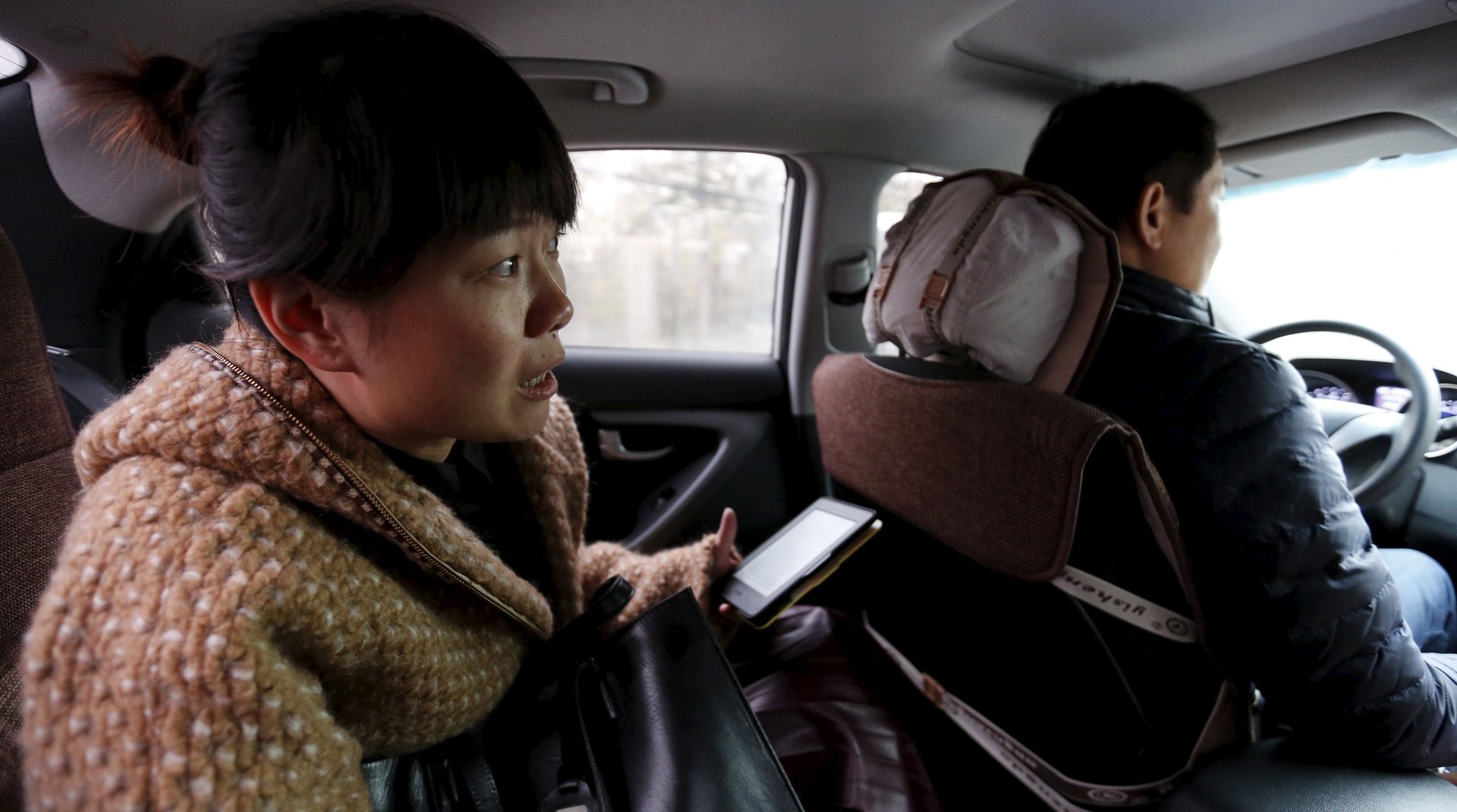Ride-share drivers in China have been secretly live-streaming their female passengers
Imagine stepping into a ride-share car hire, only to be unwittingly streamed live on the internet to thousands of people as the driver grills you on all sorts of personal questions: your age, profession, whether you’ve had something to eat. All the while, people watching the live-stream pepper an online chat room with obscene comments about your appearance.


Imagine stepping into a ride-share car hire, only to be unwittingly streamed live on the internet to thousands of people as the driver grills you on all sorts of personal questions: your age, profession, whether you’ve had something to eat. All the while, people watching the live-stream pepper an online chat room with obscene comments about your appearance.
That’s exactly what happened to at least one woman in China this week. When she got into a car she had hailed on Tuesday (Aug. 28) morning, her chatty driver, who claimed to be using the DiDa app (a rival to Didi Chuxing, China’s ride-hailing giant), probed her for personal information throughout the half-hour journey.
Without the woman’s knowledge or consent, the entire interaction was filmed and live-streamed to over 20,000 people on the Chinese video site Huya, considered the Twitch of China, according to a report by Beijing Youth Daily (link in Chinese).
Huya, which is listed in New York, has since banned any kind of live-streaming of passengers by drivers, according to a company statement posted on its official Weibo account (link in Chinese).
Other Chinese female passengers have had to deal with similar intrusions into their privacy during their rides, the newspaper also reported. These incidents closely resemble a recent case in the United States, in which an Uber and Lyft driver was found to have live-streamed his passengers to thousands of people on Twitch.
But these incidents in China are all the more unsettling, coming as China’s tech scene is rocked by two rapes and murders of female carpooling passengers in just three months. A #BoycottDidi (link in Chinese) campaign has gathered steam on Weibo as the company struggles to deal with the huge public backlash. Didi has fired two of its top executives and suspended operations of its car-pooling service, Hitch.
As the scandals pile up, people are wondering: can China’s ride-sharing startups protect the women who use its services? A recent review of court records by the South China Morning Post revealed that there have been at least a dozen sexual-assault convictions involving Didi drivers and female passengers.
Meanwhile, the company has also come under fire for being complicit in promoting a sexually predatory culture on Hitch, its car-pooling service. Its ads for the service are full of sexual innuendos, portraying it as a way for drivers to find romantic possibilities. The service had also allowed drivers to share comments about passengers’ looks.
While these problems are not unique to China—Uber, for example, has grappled with safety issues—they may hint at a more widespread problem in which the explosive growth of China’s startups have fueled a corporate culture where money is prioritized over the safety and well-being of users.
“China has grown so fast that many facets of life—shopping, online banking, transportation—lack the sort of established incumbents common in the West,” wrote Li Yuan (paywall), an Asia tech columnist for the New York Times, this week. “Tech companies can swoop in and become dominant in those areas. That makes Chinese companies appealing to investors. It also makes them potentially dangerous.”